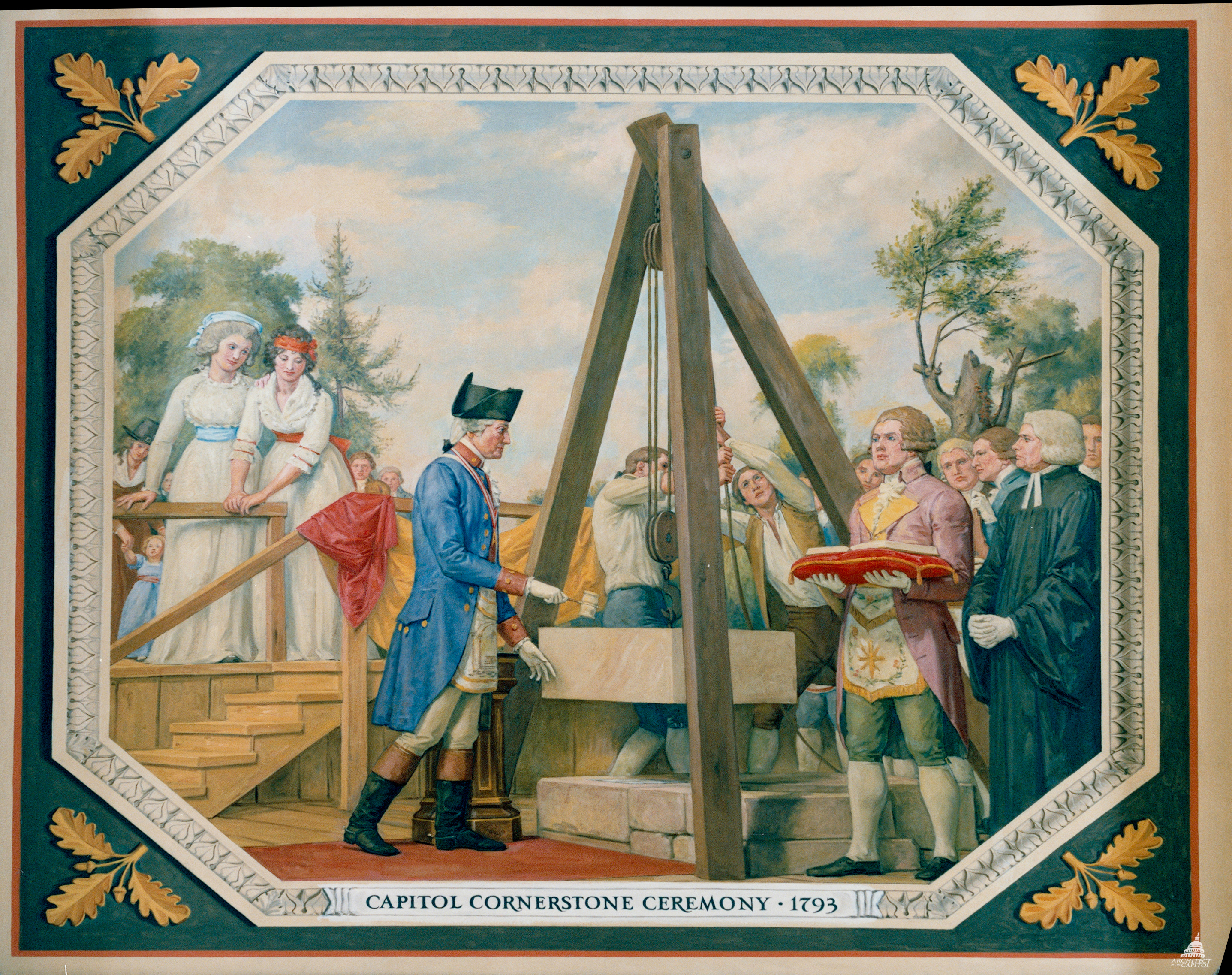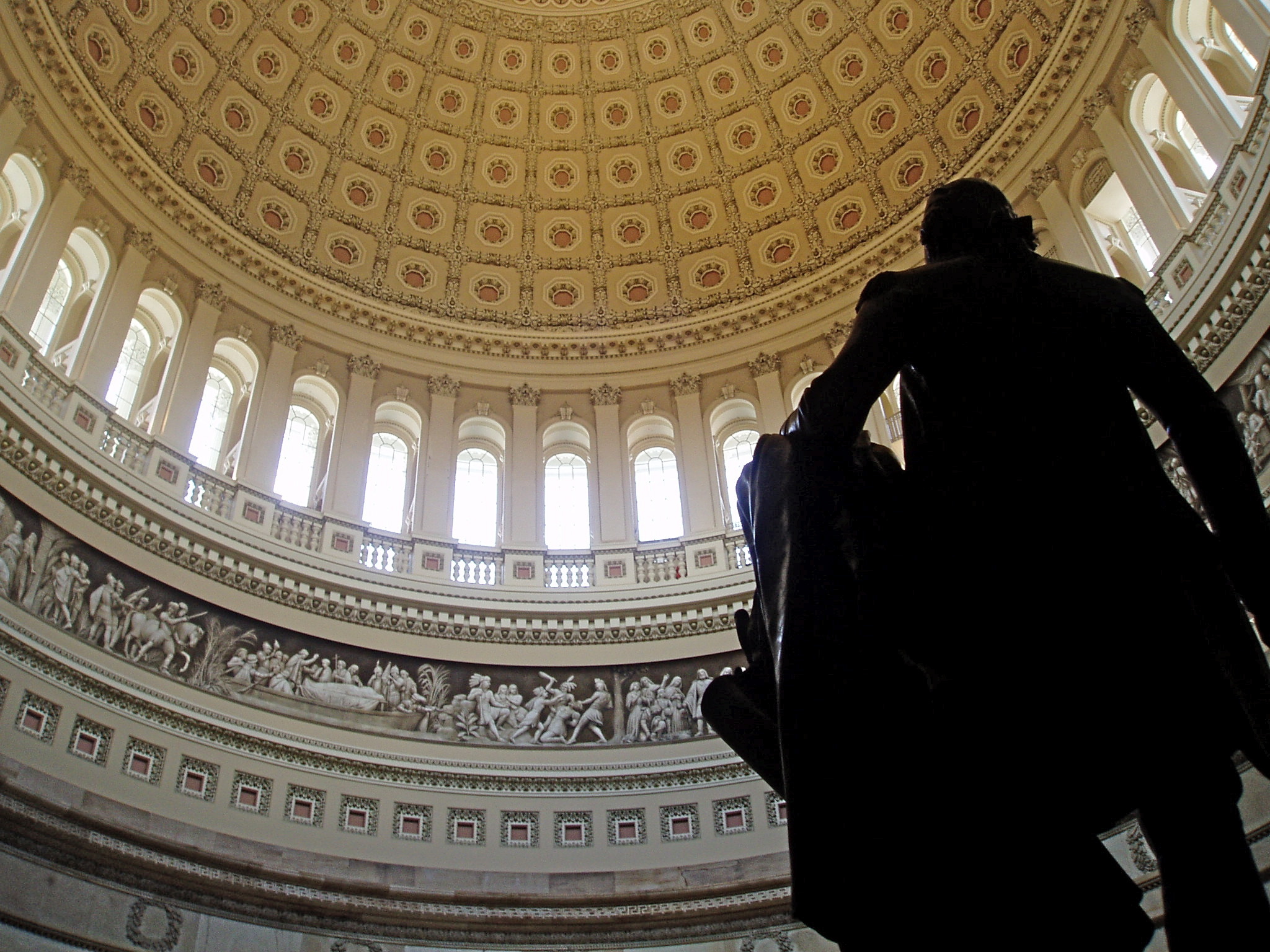First, laws are general rules that provide a consistent standard of action, as opposed to judgments made on a case-by-case basis. Second, laws must be promulgated—in other words, they must be published and made known publicly. Third, laws must be prospective, not retroactive; they must govern future conduct, not declare past conduct illegal. Fourth, laws must have clarity, and avoid vague or incoherent formulas. Fifth, laws should not have contradictory or incompatible provisions. Sixth, laws should not demand the impossible. Seventh, laws should be relatively stable over time, and changes should not be too frequent or sudden. Eighth, and finally, official action should be congruent with what the law states.
The concept of the rule of law applies not only to particular laws and their administration but to the system of government. It implies, in other words, that government itself be established and governed by a set of laws, a constitution. The United States Constitution, for example, sets forth the scope and limits of the power of the federal government and of each of its branches (executive, legislative, and judicial). It also outlines the requisite procedures to enact a law. Each state also has its own constitution, which serves the same purposes.
The rule of law is no guarantee of justice, for laws duly enacted and possessing all the formal characteristics outlined by Fuller may still be seriously unjust. Nonetheless, the formal and procedural requirements of the rule of law do in and of themselves facilitate justice and the common good in a number of ways. First, as already noted, the rule of law introduces clarity, stability, and predictability into human affairs. This is important because all the pursuits—professional, social, religious, intellectual, artistic, and so on—that contribute to our flourishing as individuals and communities are carried out over time and require a certain degree of clarity and stability in the rules and regulations that affect them. As John Finnis explains in chapter 10 of Natural Law and Natural Rights, “individuals can only be selves—i.e. have the ‘dignity’ of being ‘responsible agents’—if they are not made to live their lives for the convenience of others but are allowed and assisted to create a subsisting identity across a ‘lifetime.’”1 The stability and predictability of laws create the conditions within which we can exercise our agency.
Second, and relatedly, law imposes self-discipline on those in authority by limiting the processes by which laws can be enacted and executed. This self-discipline engenders reciprocity, fairness, and respect between ruler and ruled, insofar as legal norms and procedures bind rulers to “their end of the bargain.” Thus, Finnis explains that there is intrinsic value to the rule of law because it “is based on the notion that a certain quality of interaction between ruler and ruled, involving reciprocity and procedural fairness, is very valuable for its own sake; it is not merely a means to other social ends, and may not lightly be sacrificed for such other ends.”2
In “Reason, Freedom, and the Rule of Law,”3 Robert George unpacks the idea that the rule of law embodies a certain respect between ruler and ruled, arguing that this respect is required by the dignity of human beings as rational agents. He does so by contrasting the way in which farmers govern their livestock with the way in which rulers (should) govern those under their rule. Farmers use various methods to, literally or figuratively, poke and prod the animals to behave as they want them to. If the methods are not cruel, this way of treating livestock seems morally acceptable. Indeed, it would be silly for a farmer to explain to his cows or chickens why they ought to behave in certain ways, for animals are incapable of understanding and acting for reasons.
Humans, however, have the capacity to understand and act based on reasons, and we recognize certain things—such as health, knowledge, friendship, and religion—as genuinely good and part of our fulfillment as human beings. We can make free choices in pursuit of such good, both individually and collectively. We can, in other words, deliberate and choose, and this makes us rational agents who are morally responsible for our actions. As rational agents, we ought not to be ruled through poking and prodding, as farmers rule livestock. Instead, humans ought to be ruled in ways that respect their dignity as rational agents, and this requires those in authority to abide by the principles of the rule of law.
To fully understand how the rule of law embodies respect for the rational agency of those under its authority, it is also worth noting another characteristic of law: the inherent connection between law and reason. Thomas Aquinas provides the classic definition of law as an “ordinance of reason for the common good, made by him who has care of the community, and promulgated.”4 This means that laws are not the arbitrary or self-interested dictates of a ruler’s will but instead that the moral force of law comes from its reasonableness and its connection to the common good.

Capitol Cornerstone Ceremony – 1793, Allyn Cox, ca. 1973–74
Given our nature as social beings and our inability to flourish in isolation, practical reason directs us to promote the common good of our communities. Thus, following laws that are genuine ordinances of reason for the common good respects our dignity as rational agents because we can understand the reasons behind such laws and adopt them as our own. Ideally, therefore, law governs not primarily through force, manipulation, or the threat of punishment, but by providing genuine reasons for abiding by the laws.
Since law’s purpose is to serve the common good, there may be exceptional circumstances in which the needs of the common good justify departures from the rule of law. Indeed, most constitutions include clauses that allow executive officials to rule by decree in cases of emergency, bypassing the usual procedures for making laws. The pandemic-related restrictions discussed at the beginning of this essay—stay-at-home orders; business, church, and school closures; limitations on gatherings; mask and vaccine mandates; and so on—were mostly rules imposed by executive officials under emergency powers, allowing them to respond quickly to a public health emergency that threatened the common good.
While there are ongoing debates about the prudence and efficacy of various pandemic policies—several studies5 have shown that more restrictive policies did not lead to lower death rates but did cause serious harm to education and the economy—few would disagree that the pandemic, at least initially, warranted the exercise of emergency powers. Nonetheless, living for an extended period under emergency rules illustrates how departures from the regularity of the rule of law inflict real costs on the common good. Besides making it difficult or impossible for individuals and groups to make and carry out plans in almost any area of life, the costs include deeper, less obvious harms as well. Such executive rulemaking can undermine the sense of reciprocity and respect between ruler and ruled, leading significant segments of society to feel they are being poked and prodded into conformity like livestock, rather than being respected as rational agents whose judgments and concerns merit consideration, even if they differ from those of elites.
For instance, many religious believers felt that pandemic restrictions on communal worship reflected a failure of (mostly nonreligious) elites to appreciate the essential role of worship in the lives of believers. Government officials deemed religious practice “nonessential,” banning religious services—even outdoors or in large indoor spaces with limited participants6—while allowing businesses such as liquor stores to remain open. Such double standards exhibited a lack of logic and disrespected the judgments and concerns of religious citizens. More generally, as time passed and the need for continued restrictions became more questionable, many felt they were forced to abide by arbitrary rules and were being treated as if they were incapable of making their own responsible judgments about how to balance the preservation of health with other important human goods, such as social interaction, work, or the education of children. At one point, for example, DC regulations required my students to wear masks during class and in most university buildings but not in campus chapels, and not if they went across the street to the Starbucks or the bookstore. Likewise, even after it became clear that vaccination does not prevent people from being infected with or spreading COVID-19, many jurisdictions continued to require proof of vaccination to enter a variety of public businesses. Such senseless and incoherent rules profoundly harm the common good by breeding distrust and resentment toward the government and insulting the rational agency of citizens.
These lessons from the pandemic serve as powerful reminders that—though emergency powers are sometimes justified—departures from the rule of law and from standard legislative procedures should be rare and of relatively short duration. The deliberations and delays of enacting legislation may tempt government officials to extend emergency powers or push the limits of executive authority in other ways, but this temptation needs to be resisted (sometimes forcefully through judicial action when necessary). The “inefficiency” of legislative processes and constitutional checks and balances needs to be understood as a positive feature of the rule of law, promoting the legal stability and predictability essential for human flourishing and ensuring (at least in principle) that the legitimate competing interests and judgments of diverse groups be considered. Respecting these constitutional limits not only makes it more likely that laws will promote a just distribution of the benefits and burdens of common life but also contributes to the common good by fostering and embodying the mutual respect among citizens and
between ruler and ruled that is essential for a healthy republic.
